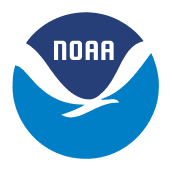GSL Seminar: “NOAA-CDC Ventures in Public Health and Weather”
On Friday, December 3, Dr. Karen Holcomb will present “NOAA-CDC Ventures in Public Health and Weather: Impacts of vector control and weather on mosquito populations and West Nile virus transmission dynamics.” Holcomb is a Post-Doc with NOAA Global Systems Laboratory (GSL), Boulder, CO, and CDC National Center for Emerging and Zoonotic Infectious Diseases (NCEZID), Ft. Collins, CO. Her post-doc is sponsored by NOAA Climate Program Office.
On Friday, December 3, Dr. Karen Holcomb will present “NOAA-CDC Ventures in Public Health and Weather: Impacts of vector control and weather on mosquito populations and West Nile virus transmission dynamics.” Holcomb is a Post-Doc with NOAA Global Systems Laboratory (GSL), Boulder, CO, and CDC National Center for Emerging and Zoonotic Infectious Diseases (NCEZID), Ft. Collins, CO. Her post-doc is sponsored by NOAA Climate Program Office.
This seminar grows out of a new NOAA-CDC collaboration aimed at providing a bridge between agencies to jointly address public health concerns, focusing initially on the impact of weather on West Nile Virus predictions. The objectives of this seminar are to provide a background on West Nile Virus (WNV) transmission and mosquito control practices, highlight the impact of weather on WNV dynamics, and dive into research on the impacts of vector control and weather on WNV. In terms of vector control strategies, the seminar will delve into the evaluation of the spatio-temporal impacts of aerial applications of insecticides and bird-delivered ivermectin on Culex mosquito populations and WNV transmissiondynamics.
Outbreaks of WNV are strongly influenced by environmental and atmospheric drivers. The virus can cause a potentially fatal neuroinvasive mosquito-borne disease and is maintained in an enzootic cycle between birds and Culex mosquitoes but can spill over to cause infections in horses and humans. Common prevention strategies rely on insecticides to reduce the abundance of infectious mosquitoes in proximity to humans, thereby reducing zoonotic transmission risk. However, the degree to which mosquito populations are reduced following applications is highly variable and difficult to measure in operational settings. Alternative vector control strategies, like ivermectin, a drug that increases mosquito mortality when ingested, are under investigation to improve the specificity of control strategies. Weatherhas large impacts on both mosquito population and WNV transmission dynamics, thereby indicating it may be a useful piece in WNV predictions.
The seminar will be held on Friday, Dec 3, 2021, at 11:00 AM Eastern.Register for the seminar »
Our Mission
Lead research and directed development through the transition of environmental data, models, products, tools, and services to support commerce, protect life and property, and promote a scientifically literate public.
Research Areas
Organizational Excellence, Earth System Prediction, Advanced Technologies, and Decision Support are the foundation to achieving the GSL Grand Challenge: Deliver actionable global storm-scale prediction and environmental information through advanced technologies to serve society.
Global Systems Laboratory

